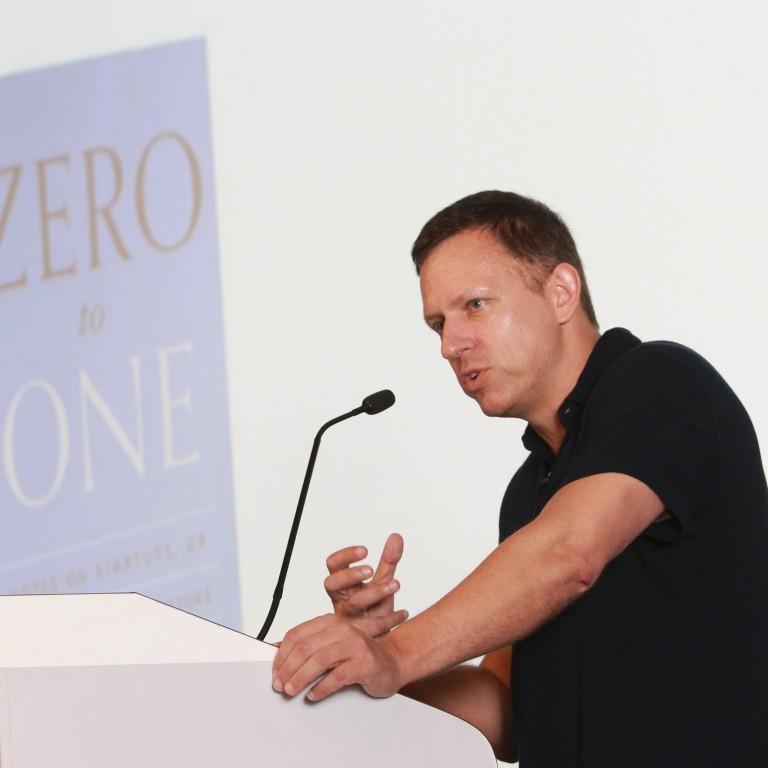
Paypal founder Peter Thiel: China must innovate or risk economic stagnation
The highly competitive nature of China’s start-up scene could limit the success of companies involved, according to venture capitalist and Paypal founder Peter Thiel.
In Hong Kong to promote his book Zero to One, Thiel put forward his theory that having a monopoly is the key to success for start-ups competing in the world's second-largest economy.
"The challenge that I see [in China] from my sort of monopoly perspective is there is a way that feels just hyper competitive," Thiel said at a book signing hosted by accelerator Brinc.
"People are incredibly good, they're incredibly fast at copying other people and there are also very, very many people they are competing with in every sort of dimension and that's the biggest challenge."
Forty-seven-year-old Thiel co-founded PayPal in 1998, and was an early investor in Facebook. He currently serves as president of hedge fund Clarium Capital and managing partner in venture capital firm Founders Fund, which has made investments in Spotify, Airbnb and SpaceX. Thiel also chairs Palantir, a data analysis firm that has been linked to US intelligence.
Forbes gives his net worth as US$2.2 billion.
Thiel explained that to achieve success a company must work to grab the greatest market share, which he identifies as timeframe one, before its competitors have caught up or even noticed.
Timeframe two in Thiel’s model is the time needed for competitors to overtake.
"The good thing in China is that people work super hard and try to get timeframe one down," he said.
"The challenge is people are super competitive and so you really have to be on the watch for all the challenges that come from a much compressed timeframe two."
In his book, Thiel emphasises the need to create new ideas rather than copying existing businesses, or what he describes as going from zero to one.
"There’s something very deep in human nature that involves imitation. But it is also what leads to the madness of crowds, crazy financial bubbles and all sorts of insane behaviour in one way or the other."
READ MORE: 'Don't rely on government' tech industry veteran Walt Mossberg tells Hong Kong start-ups
The PayPal founder is known for his eccentric investments, such as the Seasteading Institute, which he founded in 2008 to develop a floating city to test new ideas of government.
In January, Founders Fund invested an unknown sum in marijuana investment firm Privateer Holdings.
The California native said China’s economic development has shown the country’s ability to copy ideas and skip steps taken by developed nations to reach its current state.
However, he warned such a pattern means China could face economic stagnation like Japan, which also copied many technologies as it grew.
"How much longer will China be able to continue on copying and what point does it become imperative to do new things and innovate?" Thiel asked, without answering the question.


